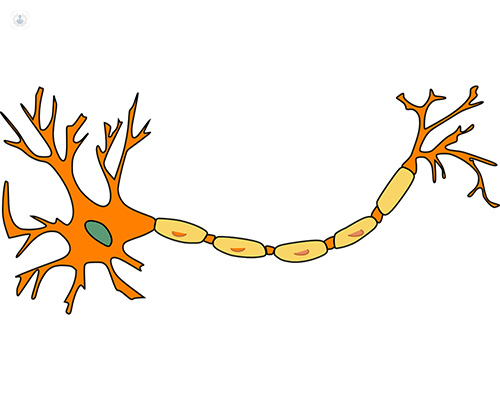Multiple sclerosis in the UK with COVID-19
Autore:Multiple sclerosis is a disease that is diagnosed in many people each year. There are some basics that people should know. Dr Stefan Schumacher, a leading neurologist specialising in multiple sclerosis and other conditions, has answered these questions for us.

How common is multiple sclerosis in the UK?
Multiple sclerosis (MS) is an inflammatory disease of the nervous system and can affect the brain and the cervical cord. This disease leads to several lesions in different places, which then shrink and become hardened. The Greek word for this is sclerosis and therefore this disease is called multiple sclerosis.
It is estimated that around 120,000 people in the UK have MS with about 5,000 to 5,300 new cases diagnosed every year.
Multiple sclerosis has always shown interesting geographic differences and in general it is so that the northern countries in Europe are affected much more frequently than Southern countries, such as Italy and Spain. The figures are definitely higher in countries such as Germany, UK, Holland, and Scandinavia. Also, the US has quite high numbers. The disease is quite unknown in many parts of Africa and Asia. However, MS also occurs in South Africa and then has quite high figures in New Zealand and Australia, which belong to the Southern hemisphere.
A cause of MS has not yet been identified.
What are the different types of multiple sclerosis?
We neurologists differentiate different types of disease which are: primary-relapsing, primary- progressive, or chronic-progressive. Most patients have relapses at the beginning and hence have primary-relapsing disease. There are certain criteria which we classify patients with here in the UK and these are the McDonald criteria which are also used in many other countries.
Are patients with multiple sclerosis more vulnerable to COVID-19?
Multiple sclerosis is a disease of the immune system and treatment for this disease is often with so-called ‘immune modifying drugs’. This means that the immune systems of many of our MS patients is lower than with healthy people and therefore many of our MS patients are more vulnerable to COVID-19. If these patients contract COVID-19, there is a potential increased risk for their health than with healthy patients. This should be considered and patients with MS should protect themselves in accordance with the national guidelines.

the myelin around the nerves (pictured here in yellow).
What it the best treatment for multiple sclerosis?
Patients with MS need to be under the care of a specialist neurology team, physiotherapy, occupational therapist, and also speech and language therapist if needed.
If patients have a relapsing disease, then we use immune modifying drugs which many of our patients find very helpful. These drugs do not heal the disease but for many of our patients the number of relapses is reduced, the symptoms improve, and many of our patients have a better quality of life. There is also medication which we can offer patients with chronic-progressive forms.
We also offer treatment for associative issues such as possible urge incontinence, fatigue, etc.
Patients with MS are also treated by a team which not only involves neurologists, but also physiotherapists, occupational therapists, and other members of a neuro-rehab team. These health workers are enormously important for MS patients and also often improve the patient’s symptoms.
Is treatment for multiple sclerosis going ahead during the pandemic?
In the current lockdown with COVID-19, a number of regular face-to-face appointments have been cancelled and changed to remote clinics. However, treatment with medication for MS including standardised immune modified drugs are ongoing.
We suggest that if the patients need to clarify if their specific treatment is ongoing ahead, they need to check this with their local MS centre team.
Multiple sclerosis may be affecting you or someone you know. To schedule a consultation with Dr Schumacher, you can go to his Top Doctors profile and request a visit.



